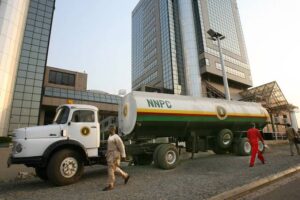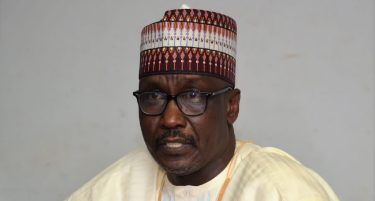The Nigerian National Petroleum Company (NNPC) Limited has declared a state of emergency on oil and gas production in Nigeria. This bold move was announced by the Group Chief Executive Officer, Mele Kyari, during his keynote address at the opening ceremony of the 23rd edition of the Nigeria Oil & Gas Conference and Exhibition (NOG Energy Week) held in Abuja on Tuesday.
Kyari’s declaration marks a significant shift in strategy, signaling the NNPC’s commitment to tackling the myriad challenges hampering crude oil production in the country. “We have decided to stop the debate. We have declared war on the challenges affecting our crude oil production. War means war. We have the right tools,” Kyari stated emphatically. “We know what to fight. We know what we have to do at the level of assets. We have engaged our partners. And we will work together to improve the situation.”
This declaration comes on the heels of a detailed analysis of Nigeria’s oil assets, which revealed that the country has the capacity to produce two million barrels of crude oil per day without the need for new rigs. However, the major impediment to achieving this potential has been the industry’s inability to act promptly and efficiently.
Kyari outlined that the “war” declared by NNPC would aim to swiftly address and eliminate obstacles that have been slowing down effective and efficient production. These obstacles include delays in procurement processes, which have long been a bottleneck in the industry. The NNPC’s strategy involves close collaboration with industry partners to accelerate the resolution of these issues.
Looking at medium to long-term measures, Kyari highlighted plans to replace all old crude oil pipelines that have been in service for over four decades. Additionally, NNPC intends to introduce a rig-sharing program with its partners. This program is designed to ensure that production rigs remain operational within the country for four to five years, aligning with standard practices globally. Such measures are expected to significantly boost and sustain production levels.
 Kyari also called for a united effort among industry players to reduce the cost of production and achieve target production levels. The emphasis on collaboration is a key component of NNPC’s strategy to overcome the challenges facing Nigeria’s oil and gas sector.
Kyari also called for a united effort among industry players to reduce the cost of production and achieve target production levels. The emphasis on collaboration is a key component of NNPC’s strategy to overcome the challenges facing Nigeria’s oil and gas sector.
Furthermore, Kyari reiterated NNPC’s commitment to investing in critical midstream gas infrastructure. Key projects include the Obiafu-Obrikom-Oben (OB3) gas pipeline and the Ajaokuta-Kaduna-Kano gas pipeline. These projects are crucial for boosting domestic gas production and supply, which in turn will support power generation, industrial development, and the overall economic prosperity of Nigeria.
On the topic of Compressed Natural Gas (CNG), Kyari mentioned that NNPC has been proactive in supporting the Presidential CNG initiative. In partnership with entities like NIPCO Gas, NNPC Ltd has established several CNG stations, with 12 new stations set to be commissioned on Thursday in Lagos and Abuja. These stations are expected to enhance the availability of CNG, providing a cleaner and more affordable energy alternative for Nigerians.
The opening ceremony of NOG Energy Week also featured goodwill messages and keynote addresses from several notable figures in the global and national energy sector. These included Haitham Al Ghais, the Secretary General of the Organisation of the Petroleum Exporting Countries (OPEC); Mohamed Hamel, the Secretary General of the Gas Exporting Countries Forum (GECF); Heineken Lokpobiri, the Minister of State for Petroleum Resources (Oil); Ekperikpe Ekpo, the Minister of State for Petroleum Resources (Gas); Olu Verheijen, the Special Adviser to the President on Energy; and Abdulrazaq Isa, the Chairman of the Independent Petroleum Producers Group (IPPG).
Their contributions underscored the collaborative spirit and shared commitment to overcoming the challenges facing Nigeria’s oil and gas industry. The insights provided by these leaders further highlighted the importance of strategic partnerships and innovative solutions in driving the sector forward.
As the conference continues, industry stakeholders are expected to engage in in-depth discussions and forge partnerships that will help transform Nigeria’s oil and gas landscape. The declaration of a state of emergency by NNPC sets a resolute tone for the deliberations, signaling that the time for decisive action is now.




